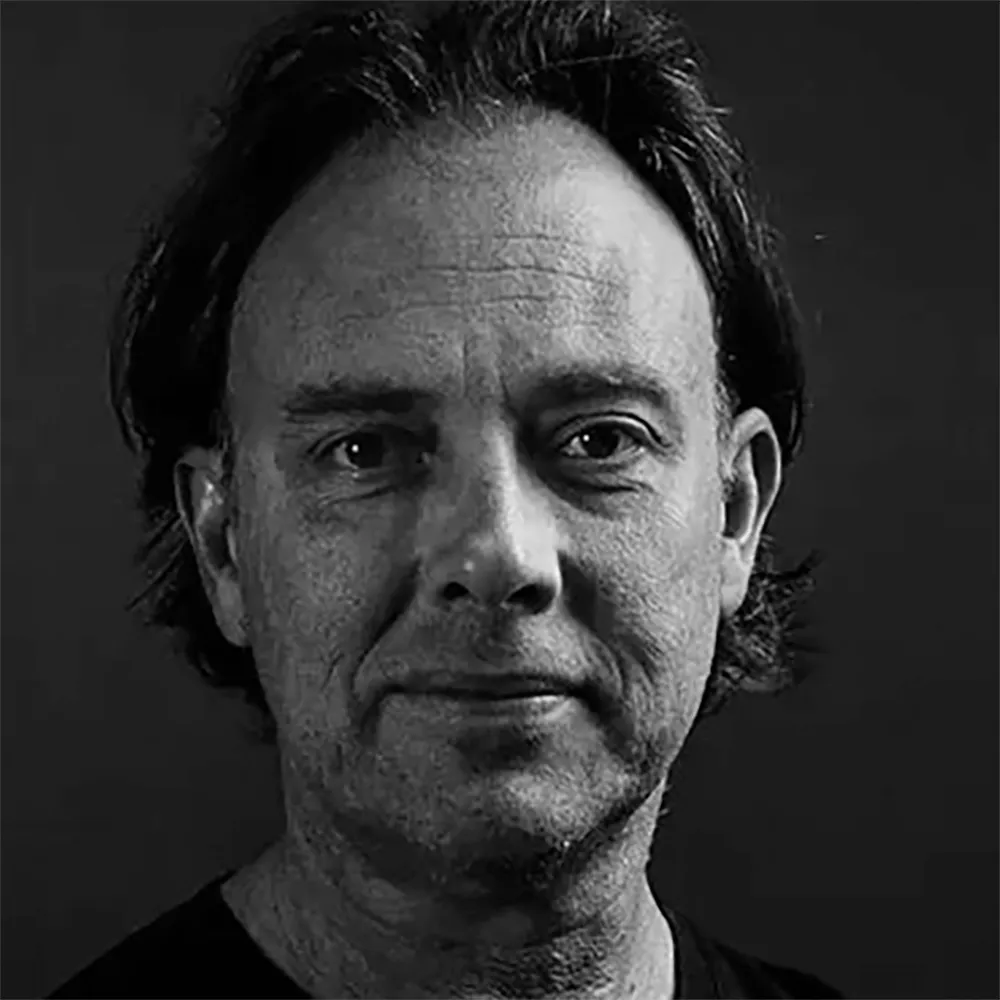“It’s been a bit of a weird journey. But of all the things I have done, I find this the most satisfying. When I walk with the dogs through the orchard and the trees are looking good and that anxiety rises: ‘How is the flower going to be this year compared to last year? What can I do to improve things?’ I find that so satisfying.”
In 2010, Jack Lewis planted 1,400 pomegranate trees on just over three hectares in the Karoo dorpie Van Wyksdorp, some 3o-odd kilometres down a gravel road. The property was bought a year earlier; this after he had retrenched himself from Community Media Trust, effectively leaving behind years of film and documentary making that also involved Idle Pictures.
A lecturer at the University of the Western Cape until he resigned in 1993, Lewis later, as part of the Treatment Action Campaign (TAC), was involved in one of South Africa’s fundamental and foundational struggles for healthcare.
In Cape Town in the early 1980s, Lewis had joined the Marxist Workers Tendency, which was ANC-aligned but significantly to the left and pushing for the independent organisation of workers on a socialist programme. He came to Cape Town after a five-year banning order for organising a demonstration in support of the Soweto student uprising, which also led to his removal from the Eastern Cape and Rhodes University where he had studied.
Meeting Zackie Achmat in late 1979, and their time in the Marxist Workers Tendency meant a close relationship spanning over 45 years. Today Lewis supports Achmat’s campaign for a parliamentary seat as an independent. ‘Fix the state’ was a call to action he could get behind.
“Fix the state works for me and the journey we have travelled from the Marxist Workers Tendency,” says Lewis, emphasising the need to create capacity in the state to run great health systems and more.
“People make empty promises without a real understanding of the economics of the technical demands that would have to be met in order to fulfil those promises. And then they can’t be fulfilled.”
South Africa has made mistakes post-1994 in its approach to management. Not appointing the right people to the right posts turned cancerous, metastasised and now underlies the problems of service delivery. It made no sense to remove doctors from hospital management, says Lewis; only doctors with experience know what medicines can be substituted for what amid shortages, and understand the importance of motivated, trained and well-equipped cleaners to prevent infection spread.
“I was a hardcore socialist. That was what I was known for — on the left of the ANC and doing the Trotskyite thing,” says Lewis, but his “big disagreement” with the Marxist Workers Tendency was over managerialism. The Marxist Workers Tendency in classic Leninism thought managers would be won over to the revolution because it is decent.
And that led him to farming — pomegranates for juice, dried pips and soon, molasses.
‘Experimental proof’
“What is going on here… is experimental proof of my feeling that I had when I disagreed with my comrades in the Tendency that management is responsible in large part in creating value….”
It’s been a case of learning on the hop. The first bottle machine he bought was totally wrong and a disaster. Getting solar power was a heavy investment, but key to powering the machinery that refrigerates, produces and bottles the pomegranate juice sold to delis and organic shops, as well as to produce the dried pomegranate seeds. A new bespoke vacuum evaporator — it looks a little like a home gin still and is jokingly dubbed the uranium machine — will launch another product, the pomegranate molasses featured in those Ottolenghi recipes.
The equipment comes from China where production and shipping costs come in cheaper than anything made in SA. If something goes wrong, advice comes via messaging systems, and then “a chap in Riversdale who is an absolute whizz at refrigeration” does the repairs.
A local aquifer supplies water and while his farm Klapperbos uses organic farming methods, it’s not yet certified organic even if tons of squeezed pomegranates mixed with manure provide the chemical-free compost. That’s because of the false codling math — the bio control measures work on large-scale pomegranate farms, but not so much on a microscopic operation like Lewis’s.
“We managed to stay organic. We use shade net to cover the trees to keep the moths out. We really don’t use pesticide.”
Eight workers man operations, a bookkeeper does payroll and VAT returns while a driver now takes the juice and dried pomegranate seeds to the market. “I was able to chisel out a market… with the smaller organic and deli type stores where I could have a direct relation with the owners. And that worked for me.”
Lewis says much of what he’s been able to do is because of “that work ethic, that sense of responsibility and that ability to plan things and to make things happen” he got from his parents. His father was a refrigeration engineer and his mom pioneered a path in education after being born on a Calvinia farm.
Solid management
At Klapperbos, after a relatively short 10 years, operations break even; the two guest houses help generate funds. It’s all been built on the back of Lewis’s own money and borrowings from family and friends. Perhaps that experience helps explain Lewis’s firm motivation for affordable entrepreneur finance at 2% to 3% to get projects off the ground and for people to be able to take ownership of the asset or project.
Farming seems to have confirmed his view that the Marxist Workers Tendency was mistaken thinking managers would be won over by the decency of the revolution. For him, it’s more a case of, yes, workers create value, but good management that can plan years in advance and can find solutions also creates value. Solid management is needed to run things well — “not in the fascist Mussolini sense of the world but in the progressive sense of the word, for the benefit of the poor”.
That also applies to South Africa where “a deep sense of disappointment” exists over the creation of an elitist society rather than a just and equal society. He’s not abandoned socialism, but the path to a just and equal society is more difficult than anyone imagined.
On the farm, Lewis is expanding after having acquired a bordering land parcel. More pomegranate trees will be planted there in August. “I enjoy the farming. I enjoy the sense of something… I feel for these trees.” DM
![]()



 1 week ago
94
1 week ago
94















